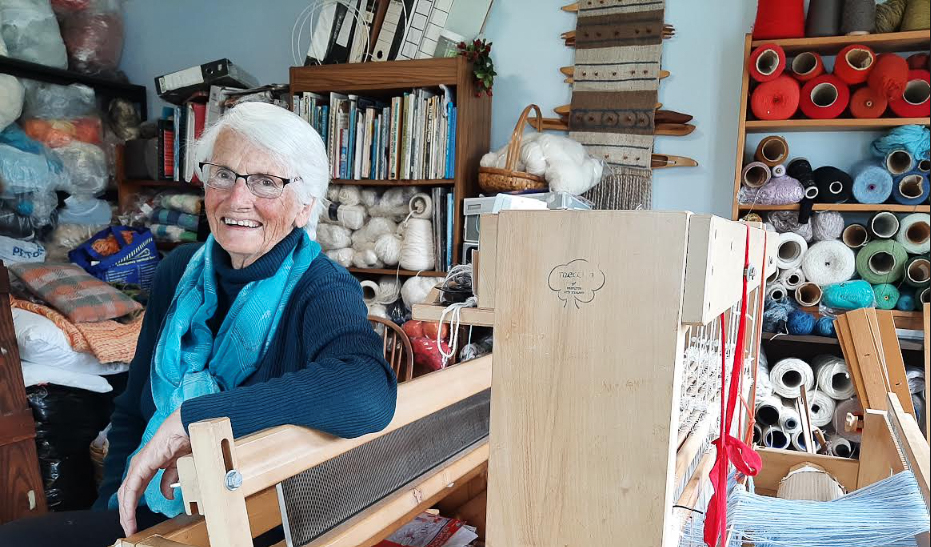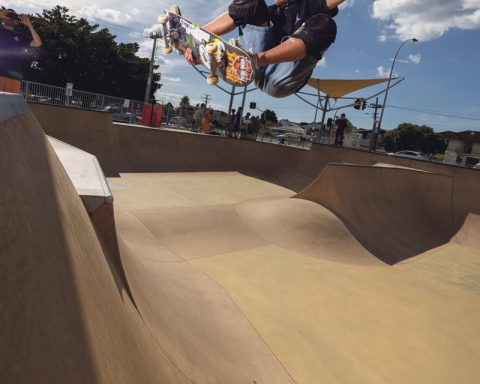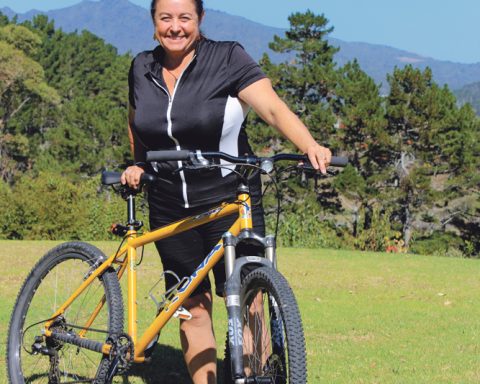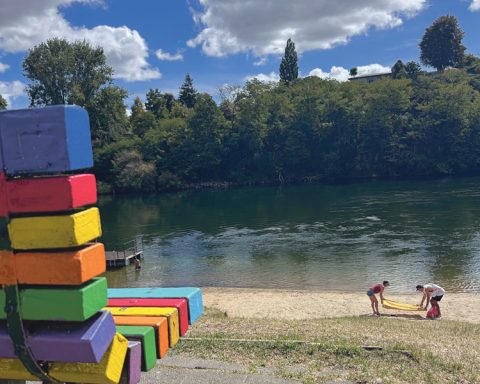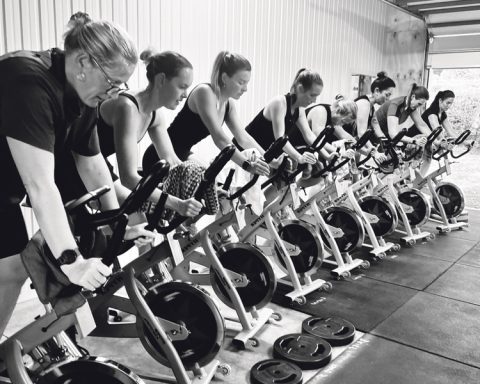Hato Hone St John Raglan is more than an ambulance service; it’s a cornerstone of our community’s health and safety, working tirelessly to ensure we are prepared and protected in times of need.
Hato Hone St John Raglan plays a vital role in providing essential emergency medical services and promoting health and well-being education in our community. As a charitable organisation, Hato Hone St John Raglan relies on the dedication of its volunteers and the support of local fundraising, with 80% of its funding coming from the government and 20% from community contributions. The Hato Hone Raglan Area Committee is made up of dedicated volunteers working hard to ensure these services continue to thrive.
Raglan’s Lifesaving Ambulance Service
The Hato Hone Raglan St John ambulance service operates from 8 am to 8 pm, seven days a week. Each 12-hour shift is manned by a team of two: one paramedic and one Emergency Medical Technician (EMT). The team is made up of three part-time paramedics and three EMTs.
When Raglan’s ambulance service is off-duty, emergency support is directed to the PRIME (Primary Response in Medical Emergencies) service. PRIME practitioners are on call 24/7, ready to respond to critical situations in the Raglan area. This service is currently managed through West Coast Health Charitable Trust. The service is activated when someone calls 111 and St John staff feel the situation is life-threatening and needs an immediate response.
Raglan Medical manages these calls during normal working hours and a team of specially trained clinicians go on call to respond outside of normal hours.
When to Call 111
In any medical emergency, calling 111 and asking for an “ambulance” is crucial.
Situations that warrant this include chest pain, difficulty breathing, choking, sudden weakness or speech difficulty (potential stroke), fainting, severe pain, or uncontrolled bleeding.
If you’re not sure whether the situation is an emergency, you can phone Healthline on 0800 611 116, where registered nurses will advise you on the assistance you should seek – including whether you need an ambulance or should visit your GP.
For non-emergencies, you can also use the 105 non-emergency reporting line or visit your GP or after-hours clinic.
Building Community Resilience A Key Focus
Hato Hone St John Raglan Area Committee is also committed to building medical resilience in our community ( that is community members feel confident with the knowledge and skills required to deal with medical emergencies effectively). This has been a key focus over the past year with the active delivery of 3 Steps for Life training; supporting groups and isolated rural areas with the resourcing of AED; and co-ordinating and funding a Mental Health First Aid course.
Raglan’s Three Steps for Life programme is coordinated by two very skilled trainers, who deliver vital training in CPR, AED (Automated External Defibrillator) use, and basic first aid tips. This training is available to local community groups and schools, helping to bolster our community’s readiness in emergencies. The Raglan Area Committee has also invested in advanced manikins for the CPR training, which allows for the sharing of real-time feedback through an app to improve participants’ skills in developing an effective CPR technique.
What Does Three Steps for Life Training Involve?
The 3 Steps for Life training is designed to empower individuals with the confidence and skills needed to identify and act swiftly in a cardiac emergency. The programme covers:
1.Calling 111: Understanding the importance of immediate action and how to effectively communicate with emergency services.
2. Performing CPR: Hands-on practice in performing Cardiopulmonary Resuscitation (CPR) to maintain vital blood flow to the heart and brain during a cardiac arrest. Participants learn the correct technique and rhythm to ensure effectiveness.
3. Using an AED: Step-by-step guidance on how to use an Automated External Defibrillator (AED). The training demystifies the device, showing participants how to follow the prompts provided by the AED to deliver a life-saving shock when needed.
4. First Aid Kit Tips: Participants are also given guidance on what essential items should be kept in a first aid kit to be prepared for any situation. Participants are encouraged to bring along their first aid kits or purchase or order one on the day.
Handy hint; these make great gifts for family and friends!
5. Education around useful emergency apps to have at your fingertips on your phone: AED locations and GoodSAM Responder.
AED Locations helps you find the nearest defibrillator to your location anywhere in New Zealand.
The GoodSAM (Good Samaritan) app connects trained CPR responders with those in need during a cardiac arrest, ensuring that help arrives as quickly as possible. The app will alert any GoodSAM near to the location when a 111 cardiac arrest emergency is recieved. This helps to get skilled people to the medical emergency as quickly as possible and helps to build medical emergency resilience in isolated rural communities where emergency medical services can be stretched.
When you feel competent with delivering effective CPR you can register to become a GoodSAM. You can do this by downloading the app to your phone and entering your details.
Guidance with this is given during 3 Steps for Life Training sessions. This app is critical in the delivery of effective CPR due to the physical effort required to perform CPR for sustained periods.
Supporting Mental Health in Raglan
In addition to physical health, the Raglan Area Committee has also been proactive in supporting mental health within the community. In March, the Area Committee hosted and funded a Mental Health First Aid course at the Sunset Hotel, for 20 community members. This full-day course provided participants with the skills and knowledge to recognise and respond to someone experiencing mental health concerns.
The course included in-depth discussions, lessons, and scenario-based activities, equipping attendees with:
-Tools to Build Mental Fitness
-Skills to Recognise Mental Distress
-Confidence to Provide Initial Help
Supporting Rural Areas with AEDs
The Raglan Area Committee has been proactive in strategically identifying locations across our community that did not have an easily accessible AED to support during medical emergencies. The local town area is well-resourced with a large number of AED, however more isolated rural areas were identified as particularly vulnerable. Recent installations include Te Papatapu Marae, 803 Ruapuke Road, and Ruapuke Motor Camp, with plans to add more at Greenslade Rd and Motakotako Marae. Funding for these AED has come from the Hato Hone St John Area Committee Raglan (3 units) and the Raglan Community Charitable Trust (2 units). All St John funded and installed AED within our community are serviced and checked regularly. Our Three Steps trainers have good knowledge about the best AED models to purchase, ordering backup pads and batteries and are happy to offer guidance.
AED Maintenance and Readiness
Best practice recommends that Defibrillator maintenance is carried out monthly by visually checking for the green light which indicates the AED is ready to be used. If the light is red and the AED is beeping at 30 sec intervals, then the AED needs some attention.
After every use, it is essential to replace the AED pads and check the battery. Typically, AED pads last about two years, while batteries have a lifespan of 4-5 years.
AEDs sourced with the support of the Raglan Area Committee are standardised models, ensuring that replacement pads can be quickly obtained from the local station after an emergency, so the AED is ready for the next use without delay.
If your group or organisation is considering purchasing an AED our team is happy to share guidance around recommended models and general education.
Early CPR and application of an AED are crucial to survival when someone goes into cardiac arrest. Currently, 76% of cardiac arrests happen out of hospitals have bystanders who perform CPR, and we want to equip everyone with what they need to know to help.
Do you know how to perform CPR and use an AED? Get a group together and learn the Three Steps for Life.
You can make contact with our training team by emailing
raglanareacommittee@stjohn.org.nz
Supporting Hato Hone St John Raglan
Fundraising is vital to keeping Hato Hone St John Raglan equipped and able to support the community. The local Farmer Calf Raising Scheme has recently been revived post-COVID, and makes up a significant source of funding. The Raglan Area Committee is very grateful to the local farmers who are supporting the community by participating in this scheme. If you are willing and able to join this scheme please make contact via email:
raglanareacommittee@stjohn.org.nz
Families supporting this scheme receive free St John Emergency Ambulance membership.
Cash Donations are another key factor in our fundraising, if you wish to support Hato Hone St John Raglan in this way, you can do so by donating directly to our Area Committee Bank account, thus ensuring that the money received will get spent back within our community.
You can request a receipt by contacting via email: raglanareacommittee@stjohn.org.nz
Promotion Go in the draw to win a large St John Ambulance First Aid kit by visiting our Hato Hone St John Raglan facebook page.
Follow our page and comment on our promotion the number of AED Raglan Area from Whale Bay to Te Uku.
Tip; you will have to first download the AED locator app to your phone to discover the number. Every correct answer will go into a hat to be drawn at our next Area Committee Meeting on the 18th of September.






